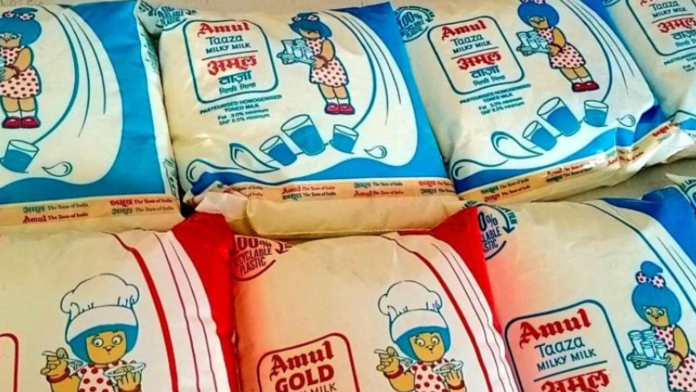Amul is not expecting any price increases this year due to favorable conditions. According to Jayen S Mehta, the Managing Director of the Gujarat Cooperative Milk Marketing Federation (GCMMF), timely monsoon rains in Gujarat and the commencement of a robust milk procurement season have contributed to a positive outlook. GCMMF markets its dairy products under the renowned Amul brand.
“The situation is pretty good this year because of timely monsoon in Gujarat at least which means the pressure on producers for the feed and fodder cost is not high, and we are entering the flush season of milk procurement, so we are not anticipating any hike,” Mehta said.
He made this statement in response to an inquiry regarding the possibility of price increases in the upcoming months.
Regarding their investment strategy, he mentioned that they are currently allocating approximately INR 3,000 crore annually, and this commitment is expected to continue for the foreseeable future.
“…with increase in milk procurement and processing facilities also need expansion, we will be announcing a new dairy plant at Rajkot…with a capacity of more than 20 lakh litres per day, and a new packaging and processing units also there,” Mehta said.
He also noted that they intend to allocate a minimum of INR 2,000 crore for the Rajkot project, with several additional projects simultaneously in progress.
In response to inquiries regarding specific trading partners such as the European Union (EU) seeking import duty concessions within the context of free trade agreements (FTAs), Mehta emphasized that milk serves as a livelihood for over 100 million families in the nation, with the majority of producers being small-scale and subsistence farmers.
“If the developed countries want to dump their surpluses into our country, it becomes a problem for our farmers and that’s what Amul has represented several times to the government,” he said adding the government also understood this the core issue and that is why the dairy sector has been kept out in all FTAs.
“India allows import of dairy goods like European cheese at a marginal 30 per cent duty…Those countries do not reciprocate this. It is difficult to export dairy products to EU … The US has duties from 60-100 per cent…India is an open market but here we don’t want their surpluses to come at a cheaper rate and harm the livelihood of our small farmers,” he said.





